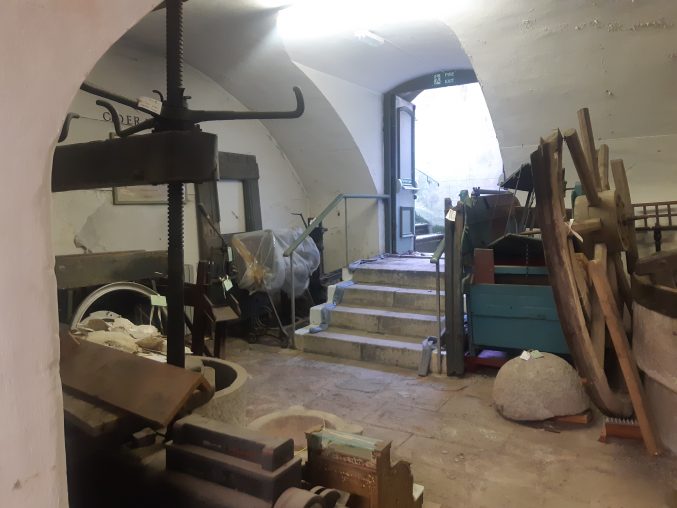Reassessing the Agricultural Collection
Posted on by Alice Bush.
by Amber Druce, Curator of Social History
One of the biggest challenges facing museums is a lack of storage space for expanding collections. For the past 10 years, we’ve been rehoming some of the agricultural objects in our collection that don’t have a local link, partly as a response to that, but also to make our collections as relevant as possible. It’s a slow process to do it ethically but it’s all worth it to keep as much of it in the public domain as possible.
We chose the agricultural objects because they were collected for a folk life museum created in 1949. This was Blaise Museum, which instead developed as a social history museum. Now, we only collect objects with a strong Bristol connection and a relevant background story.
The first stage was to catalogue and photograph all the agricultural items in storage at Blaise Museum. Most of them had a register number and paper records, but very few of them were on our electronic database. We needed to make sure all information was readily available (where objects came from, who gave them, measurements, etc). This helped us identify what was most relevant and what could be transferred somewhere more appropriate.

We then hired an external specialist to assess the collections. Their report contained recommendations, some of which reinforced the opinion of the curatorial team in respect of items no longer being relevant to Bristol collections. In other cases, strong arguments for retention within Bristol were made and in other cases there was a need for further research and discussion.
Objects were selected for disposal if they fell outside Bristol Museums’ collecting policy, due to being unprovenanced or from a different geographical area. If it wasn’t local, we couldn’t justify keeping it if there was somewhere more appropriate it could be cared for.
These objects were listed on the ‘Find an Object’ section of the Museums Association website for two months, 2018-2019. This gave accredited museums a chance to express an interest in the collections available for rehoming.
We offered provenanced items to their nearest museums and non-provenanced items were offered to the Museum of English Rural Life. An objects list was circulated on the Rural Museums Network mailing list in 2019.
Since then, we’ve rehomed objects to Stroud, the Richard Jefferies Museum, The Auchindrain Trust, Longleat, Aldbourne Heritage Centre, Tiverton Museum, Cotswold Motoring Museum, Staffordshire Archives & Heritage, Chippenham Museum, Ashwell Village Museum, and the Museum of Cider in Hereford, amongst others. After this, we offered objects to a cider history specialist, to Artspace Lifespace and to artist, Pod Farlow, who uses agricultural tools in his work.
Museums have a responsibility to ensure their collections are well managed, actively used and sustainable. Moving agricultural items to more relevant organisations and fully cataloguing the collection has allowed us to better see what’s relevant to Bristol and therefore more likely to be displayed.